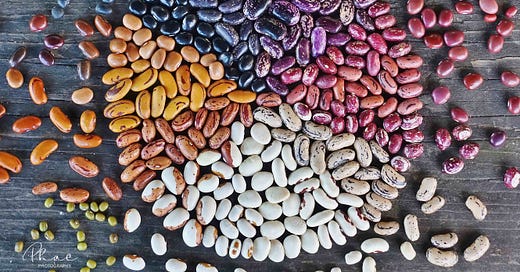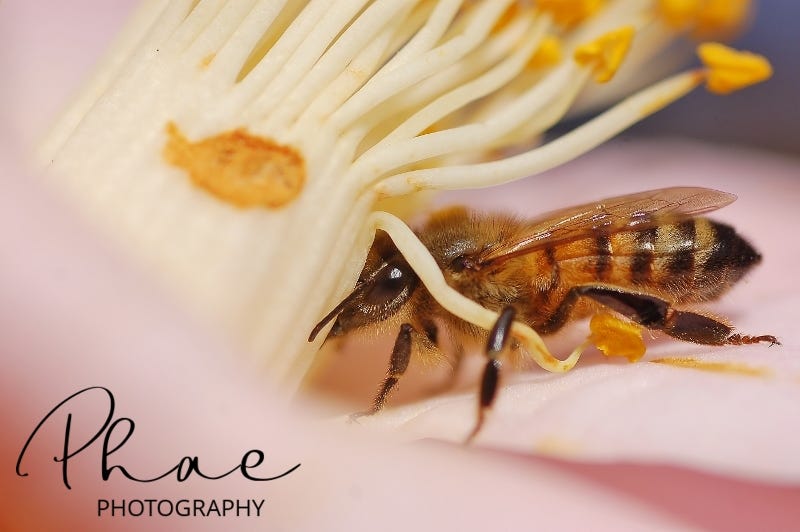Why Local Foods Are Important and What You Can Do To Make Change
Location matters when it comes to food
In recent years, there has been a push for local foods. Farmers markets exist in most, if not all cities, in America. Farm to table is popularized by restaurants, small shops and even some food distributors. It seems the “local food” movement has gained steam in many areas.
As you travel, shop, and live, you probably see options around you for local foods. But what does “local food” actually mean? And how do these options affect our food security? It might be trendy to “shop local” or “support local farms,” but these efforts have real meaning behind them that create serious change in our communities and beyond.
From early 2020 until 2023, the world saw an unprecedented level of shut down and supply chain crises. Unexpected food shortages affected many people. Whether it was the temporary lack of certain meats or vast and prolonged egg shortages, we saw breakdowns in the supply chain. For some families, this did not affect the overall quality of their food supply; they could adjust. But for many families, losing access to certain key foods dramatically affected their overall nutrition.
Would you have enough to eat if supply chains were further affected? What would be the larger implication of a food system that couldn’t move items from one location to another? What foods–both unprocessed and processed–would or would not be available? Would you have to adjust your diet or lifestyle to adapt to these new circumstances?
On a large scale, how would this affect our communities?
Imagine for a moment if you knew where you could secure your basic ingredients within a 30 miles radius:
Wheat and other grains
Beans
Beef
Pork
Dairy
Vegetables (bio regionally grown)
Fruits
Poultry and eggs
Nuts and seeds
Seafood in coastal areas or freshwater fish inland
From these basic ingredients, you could eat well and be nourished. Milk can be turned into a variety of wonderful foods–yogurt, butter, cream, cheeses, kefir and more. Meats, poultry, eggs, and fish are nutrient dense containing plenty of the fat-soluble vitamins that we need for proper health and essential for complete proteins. Grains are ideal for processing into flour and baked goods. Beans, nuts and seeds give us important fibers–many of which are necessary prebiotics.
Vegetables and fruits offer starches, sugars, flavors and phytonutrients that make our food fun and exciting. Can you imagine certain meat dishes without the savory sauces that make them so amazing?
The question becomes how vulnerable are you (or your community) to food shortages? I am not speaking of grocery store shelf shortages. We all know that when a storm hits, people strip those shelves bare. And then they are at the mercy of whatever the distributors are able to bring until the supply chain becomes more stable in bringinging packaged food back to the store.
But where is it all the packaged food coming from?
There are different levels of food security, store shelves being the least reliable in a crisis. The greatest security comes from knowing that you have diversity and a plethora of food produced in your community. Food security comes from knowing your producers and being part of that production cycle yourself. It comes from being aware of where the vulnerabilities are in your food production and processing (local and national), and how to meet those vulnerabilities with tangible tools to correct them.
How do we exponentially increase food security without drastically altering our lives?
Shifting slightly from a purely consumer mindset (completely reliant on others for all your food), to a producer mindset on any level (growing something no matter how little), immediately inspires an awareness to where supply chain vulnerabilities are and how to correct them. It allows you to notice things you didn't notice previously and make corrections for those things locally.
An example of this could be as simple as a neighborhood herb garden. Herbs, while not high in calories or a staple in our diets, provide amazing flavors for our foods as well as specific, albeit mild, healing properties for our bodies. Herb gardens provide habitat for our native pollinators–anywhere in the country. Lastly, jointly tended gardens are a great way to engage with the community on a common goal.
As you think about your local food system, consider what it means to your food security if you only had available what was produced within a 25, 50, or 100 mile radius. Then strengthen those farms. Insist that your community not interfere with production so that your area can–mostly–feed the people who live there. Expand the radius if you need to. But, ensure that you are not relying on food produced, manufactured, or processed hundreds (thousands) of miles away under insecure or vulnerable circumstances. Inspire your community to know and understand how to produce food together, even if only an herb garden on the local level. Insist on this like your life depends upon it–because, just maybe, it does.
False food security.
We keep falsely reassuring ourselves that it’s okay, we got through the latest catastrophe okay and surely we will get through the next one. But that assurance is not truly there. It is a false security. The continued outsourcing of production weakens that security.
Resilience is the ability to adapt to external challenges. The challenges we see in front of us are not necessarily the challenges that pose the greatest risk to us. Sometimes it is the challenges that are invisible to us, or the ones we don’t want to acknowledge. But they are there, looming just beyond the corner of things.
My point in voicing this issue is NOT to instill fear. The message, I hope, in this article is for you to simply begin. Learn more, collaborate. The goal is to be at peace knowing that whatever happens, you/we HAVE food security within our communities. The objective is to remove layers of vulnerability from you, your family, and your community.
Many of you reading this might feel like this doesn’t apply to you because you have enough funds to buy food even if the prices skyrocket. I would ask you to take a look around you. If/when food becomes scarce, who will even sell it? People will protect it with their lives. At that point, your money holds no value. It will be your experiences, your ability to contribute to the ecosystem that will sustain you. What will you have to contribute? And, if you have that to contribute, contribute it now. Build now. Our ecosystems need you. Our food systems need you.
Your community needs you. Build now.







Hello Liz,
I am always intrigued and informed by your thought provoking articles. You not only give us so much pertinent information, but you always put the questions to us to make us think “outside of the box.”
Growing up in Massachusetts with 10 other siblings, plus mom and dad, made me aware, at an early age, of the importance of having that big family garden. I learned the basics at an early age from both parents.
I have raised garden beds that I built over the years, and have recently increased my production of vegetables and even flowers. I have learned the importance of pollination, so I have not only beautiful flowers in my yard, but flowers, such as marigolds, planted among the veggies to repel offending insects. I do not use chemical pesticides because I know of the detriment they cause to our overall ecosystem.
Please continue to provide us with your valuable information. I love the idea where you try to encourage all start a small garden for themselves. Once you get started, your enjoyment will keep you going to grow on a larger scale. To watch a tiny speckle of a seed germinate and become a beautiful flower or a huge tomato plant, will bring a smile to your face.
Thanks again for sharing your knowledge with us..
Thankfully,
Bob Gaines
Living in California has made it easy in some ways to find organic foods and people who raise humanely and truly loved, plants, animals, and make goodies from skilled hearts and loving minds. We are growing a garden according to shared info from you and others, we can make our own butter and have access to a beautiful cow and milk when her baby does not drink it. We have learned to make yogurt and through the efforts of people like you, Liz we have learned so much. Thank you for the blessing you are, Sharon